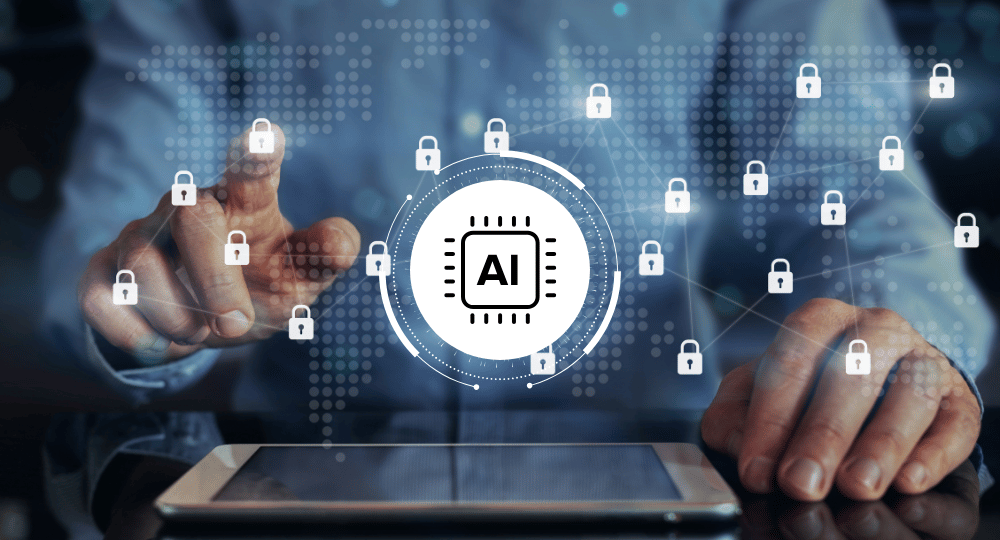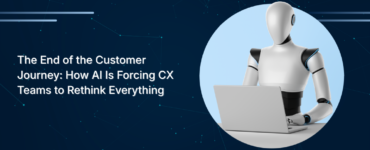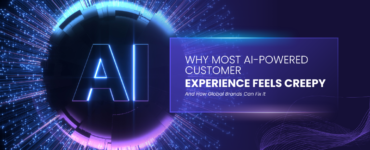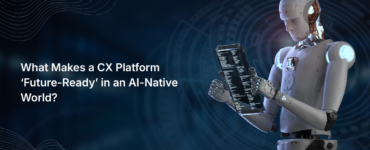Cyber threats are no longer a once-in-a-while concern—they’re a daily battle. Every second, businesses are being targeted by sophisticated attacks that are faster, stealthier, and more damaging than ever. Traditional cybersecurity systems? They’re trying, but they’re often just too slow.
That’s where AI agents in cybersecurity step in—and they’re flipping the entire playbook.
These aren’t your average bots. We’re talking about intelligent, autonomous systems that think, analyze, and act—all in real time. Whether it’s stopping ransomware in its tracks or predicting a phishing campaign before it even launches, AI agents are becoming the new frontline defenders of digital ecosystems.
Also read: What is Agentic AI? The Future of Autonomous Problem-Solving to understand how autonomous AI systems are revolutionizing multiple industries, including cybersecurity.
The Cyber Battlefield Is Evolving—Fast
Gone are the days of simple firewall defenses. Cybercriminals now use AI, automation, and social engineering to slip past traditional security measures. Add to that zero-day exploits, insider threats, and deepfake phishing—and suddenly, your security team is fighting an uphill battle.
And it’s not just big enterprises at risk anymore. Small and medium businesses are increasingly targeted because of weaker infrastructure. But whether you’re a fintech startup or a global enterprise, the pressure is the same: detect threats faster, respond smarter, and scale your defenses as you grow.
That’s exactly why AI-powered cybersecurity is no longer a luxury—it’s a necessity.
What Exactly Are AI Agents for Cybersecurity?
At their core, AI agents for cybersecurity are intelligent software programs designed to perform specific security functions with autonomy. These agents integrate artificial intelligence (AI), machine learning (ML), and behavioral analytics to:
- Monitor networks, endpoints, cloud environments, and user activity
- Identify deviations from normal behavior
- Automatically initiate threat response protocols
- Continuously improve through data-driven learning
They function like tireless security analysts, identifying threats in real time and taking actions like isolating infected machines or blocking unauthorized access—without waiting for human approval.
Core Technologies Behind AI Agents:
- Machine Learning (ML): Enables pattern recognition and anomaly detection
- Natural Language Processing (NLP): Helps understand context in phishing emails, logs, and alerts
- Computer Vision: Identifies visual-based attacks, such as deepfakes or manipulated images
- Graph Analysis: Detects lateral movement and relationships between entities in a network
These technologies make AI agents not only faster but also significantly smarter than legacy systems.
How AI Agents Automate Threat Detection
Step-by-Step Breakdown:
- Data Collection: Continuous intake from multiple sources—network traffic, endpoint logs, cloud activities, and user behavior.
- Behavior Modeling: Establishes baseline patterns of “normal” activities.
- Anomaly Detection: Flags deviations that could indicate a potential threat.
- Correlation & Contextualization: Links events across systems to form a complete threat picture.
- Automated Response: Executes pre-defined actions like alerting, quarantining, or blocking threats.
Advanced Capabilities:
- Threat Intelligence Integration: Combines internal insights with global threat databases for enriched detection
- Real-Time Risk Scoring: Prioritizes incidents based on severity and impact potential
- Self-Healing Systems: Some AI agents can patch vulnerabilities or reconfigure systems on their own
This proactive approach reduces dwell time (the time an attacker remains undetected in a system) and limits damage.
Benefits of Using AI Agents in Cybersecurity
- Lightning-Fast Threat Detection: AI agents work in real time, analyzing thousands of data points per second to spot potential breaches instantly. This speed is critical in preventing data loss, system compromise, and business disruption.
- Round-the-Clock Vigilance: Unlike human analysts, AI agents don’t need breaks or sleep. They provide continuous monitoring 24/7, ensuring threats are caught even outside regular business hours or during holidays.
- Lower False Positives: By understanding user and system behavior over time, AI agents can differentiate between legitimate actions and true anomalies. This minimizes the noise from false alerts and allows human analysts to focus on real threats.
- Rapid Automated Response: Once a threat is confirmed, AI agents can automatically take actions such as blocking malicious IPs, isolating compromised devices, or triggering multi-factor authentication. This drastically reduces response times.
- Scalability Across Infrastructure: As businesses grow, AI agents can easily scale to monitor new endpoints, cloud platforms, and user accounts without needing massive reconfiguration or staffing.
- Cost Efficiency
By automating time-consuming tasks and reducing the need for a large team of full-time security analysts, AI agents help businesses save on cybersecurity operational costs. - Predictive Defense: AI agents don’t just react—they predict. By spotting emerging patterns and correlating signals, they can anticipate potential threats and vulnerabilities before they are exploited.
- Enhanced Compliance and Reporting: AI agents help businesses meet regulatory requirements by automatically generating audit logs, maintaining data integrity, and detecting policy violations in real time.
- Human Analyst Augmentation: Instead of replacing human security experts, AI agents enhance their capabilities by handling repetitive tasks, surfacing critical insights, and supporting faster decision-making.
- Adaptive Learning: AI agents continuously learn from new data, adjusting their models to better detect and respond to evolving attack strategies. This makes them more resilient against zero-day threats and previously unknown exploits.
Choosing the Right AI Agent Development Company
Implementing AI agents isn’t just about software—it’s about strategy. You need a development partner who understands both cybersecurity and AI at a deep level.
What to Look For:
- Proven experience in AI and machine learning
- Understanding of regulatory requirements (GDPR, HIPAA, etc.)
- Capability to integrate with existing security tools (SIEM, SOAR, XDR)
- Support for customization and continuous model training
Partnering with the right team ensures you’re not just buying tech—you’re building resilience.
Final Thoughts: The Autonomous Future of Cybersecurity
Cybersecurity isn’t just about defense anymore—it’s about prediction, prevention, and rapid response. With AI agents for cybersecurity, businesses gain a powerful tool that not only detects but also reacts to threats in real time.
By automating the most critical parts of security operations, AI agents free up human teams to focus on strategy and innovation. And as cyberattacks continue to evolve, having intelligent agents that evolve with them is no longer optional—it’s essential.
Ready to level up your security game? Explore the power of AI-driven autonomy in cybersecurity today.
Don’t forget to check out Agentic AI: The Future of Autonomous Problem-Solving for more insights on the tech behind these intelligent systems.
FAQs
What are AI agents in cybersecurity?
AI agents are autonomous programs that detect, analyze, and respond to cyber threats using technologies like machine learning and behavioral analytics.
How do AI agents detect threats?
They analyze vast data streams in real time, spot anomalies, correlate patterns, and identify malicious behaviors—even unknown ones.
Can AI agents act on threats?
Yes. Depending on configuration, they can isolate devices, block IPs, initiate MFA, or alert human teams instantly.
Why are AI agents better than traditional tools?
They’re faster, smarter, always-on, and capable of adapting to new threat patterns without manual updates.
Is it safe to trust AI with cybersecurity?
With the right development partner and continuous oversight, AI agents are a powerful and reliable component of a modern security strategy.




